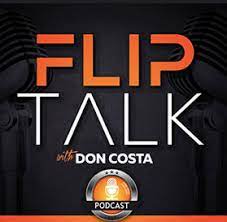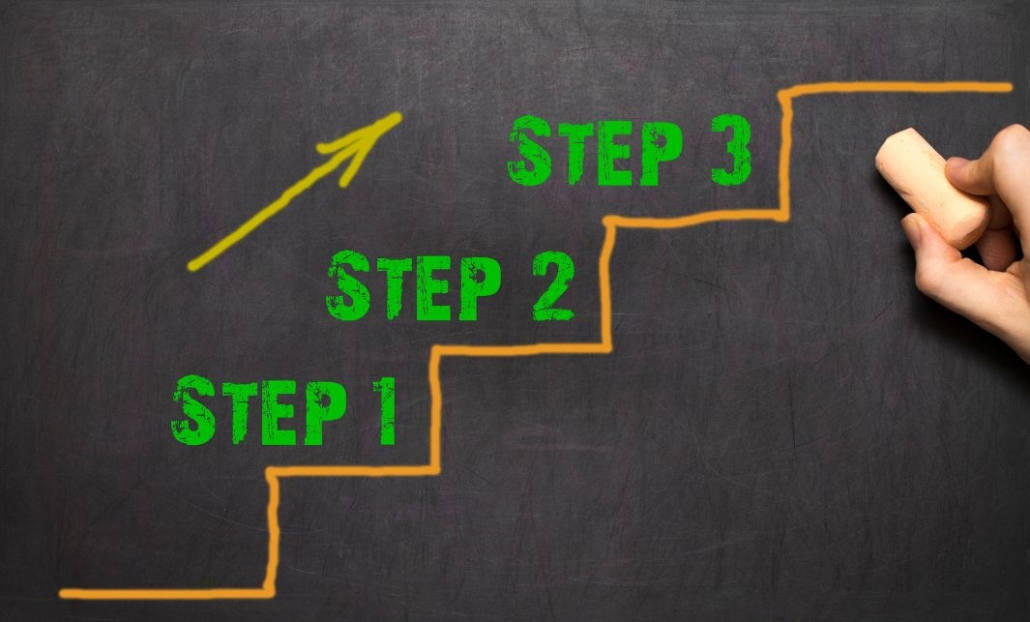Unlocking Wealth: 5 Real Estate Mistakes to Avoid for Smart, Passive Income
By Hugh Zaretsky
Real estate investing is an extremely powerful tool for building short-term and generational wealth. This includes offering a route to financial freedom while delivering passive income. However, navigating this path successfully requires awareness of common pitfalls that can thwart even the most well-intentioned investors. With a diverse portfolio that spans from $40,000 single-family homes to million-dollar properties, I’ve gleaned valuable insights on effective strategies and mistakes to avoid. Here’s a detailed look at the smart ways to invest in real estate and the top five mistakes people often make, enriched with real-life stories from my experience and some pro tips.
1. Failing to Do Thorough Market Research

What to Do: Conduct comprehensive market research before investing in areas, especially in locations that you do not know well. Have you seen the Homes.com commercials? They joke about going undercover and doing the research for you. However, this is what you need to do especially for out-of-the-area markets. You need to understand local economic drivers, population growth trends, employment rates, and housing demand.
Is there a new casino going into the area or is a factory closing? Both can have a significant impact on the local economy and the housing market.
article continues after advertisement

Use resources like:
Local Government Websites: Access economic development reports and city planning documents. It is mainly free and open to the public. You just need to know where to look.
Real Estate Portals: Sites like Zillow, Homes.com, Redfin,PropertyShark and Realtor.com offer market trends and property value data.
Market Analysis Reports: Industry reports from companies like JLL, CBRE, or local real estate associations provide in-depth market insights.
**Mistake to Avoid:** Investors often buy properties that are cheaper but in areas with declining populations or economic instability, leading to poor returns and high vacancy rates.
Story: Early in my career, we bought a portfolio of “cheaper properties” compared to where I live in a small midwest town with the expectation of significant growth happening in the area. However, the city delayed the major growth project in the area. While other areas of the country grew 10 to 50% before or during COVID this area stayed flat. This taught me the importance of thorough market research.
2. Overleveraging and Poor Financial Planning

What to Do: Maintain a conservative debt-to-equity ratio and have substantial cash reserves. This includes:
Budgeting for Contingencies or Whoops factor: Set aside funds for unexpected repairs or vacancies.
Creating a Financial Plan: Include investment goals, cash flow projections, and exit strategies. Make sure to find out the cost of a refresh in your area.
Mistake: Overleveraging can lead to financial ruin if the market shifts or unexpected expenses arise, leaving you unable to service debt or cover costs.
Story: The real estate market will not go up forever. I learned this lesson the hard way during the 2008-2010 housing market crash. Instead of taking profits along the way by selling off some of our properties. We were caught in the downturn. We lost a few properties and had to sell others at a loss. This experience underscored the necessity of maintaining a healthy balance between debt and equity.
Pro Tip: I typically have my client’s people set aside or keep a reserve of 1% of the purchase price or 10% of the rehab budget whichever is higher when fixing a property. You should also have 3 exit strategies and not just one for each of your properties.
3. Ignoring Property Management:

What to Do: Either manage properties efficiently yourself or hire a reputable property management company. Key responsibilities include:
– Tenant Screening: Conduct thorough background and credit checks.
– Rent Collection: Implement a reliable system for on-time payments.
– Maintenance: Regular inspections and prompt repairs to maintain property value.
Mistake: Poor management leads to high tenant turnover, property degradation, and loss of rental income.
Story: I have lots of my clients and students who have had bad experiences because of not doing proper screening on their tenants. The least of your concern is the tenant not paying rent for 6 to 9 months. One couple that I coach wanted to be nice to their tenant and listen to a local attorney who said, “The tenant would leave after a few notices.” It had already been several months of late rent and not paying in full when they engaged the attorney. Well six months later, they finally listened to me and got the eviction process started. The tenant fought it but did move out when the sheriff finally showed up to evict them. Sometimes we have to make a hard choice.
Pro Tip: Don’t be cheap and make sure to do background checks on your tenants.
4. Skimping on Due Diligence

What to Do: Perform your due diligence before purchasing and use professionals even if not required in your state. This includes:
– Property Inspections: Hire professional inspectors to check for structural issues, pest infestations, and compliance with safety regulations.
– Hire Attorney to Perform Legal Checks: Ensure there are no liens, easements, or zoning problems.
– Surveying: Verify property boundaries and land use restrictions.
Mistake: Failing to uncover these issues can result in costly legal battles, unexpected repair expenses, or inability to use the property as intended.
Story: This is one of the biggest things that my clients and students want to push back on in states where attorneys are not required to purchase a property. Do not be CHEAP as there are lots of horry stories. I would much rather pay an attorney $750 to $1,500 to do a closing than find an issue later the cost $20,000 to $100,000+ to fix or even worse an EPA issue. I was just talking with someone buying their own home that had asbestos only in their floor. Anything EPA related will most likely cost 25%+ more than you expected and take longer 30 to 90 days longer to fix than you planned. So, be prepared. The government does not move fast.
5. Underestimating Costs

What to Do: Accurately estimate all costs involved. This encompasses:
– Closing Costs:** Fees for legal services, title insurance, and loan origination.
– Renovation and Repairs:** Obtain detailed estimates from contractors.
– Ongoing Expenses:** Property taxes, insurance, utilities, and maintenance.
Mistake: Many first-time home buyers and investors focus solely on the purchase price, underestimating the total investment required, leading to cash flow issues. Most people are shocked by all of the closing costs on their first deal.
Story: On my first home, I did not review the HUD (Now, closing statement) before my closing but that is the time to see all of the expected costs on the closing of your home or property. I ended up paying an extremely high fee to my mortgage guy. My attorney caught it at the closing but it was too late to change it for the purchase.
Pro Tip: Make sure to review all of your fees on the documents you sign before closing. Make sure to have your professionals outline their fees upfront.
article continues after advertisement

**Conclusion**
Real estate investing is a powerful tool for building wealth and achieving financial independence, but it requires careful planning and informed decision-making. By avoiding these common mistakes and following strategic investment practices, you can enhance your chances of success and meet your financial objectives. For more insights, Pro Tips, and detailed guidance, visit [www.hughzaresky.com](http://www.hughzaresky.com), where I share my experiences and tips from decades of real estate investing.
Happy investing!

Hugh Zaretsky
Hugh Zaretsky, was an IT executive until his wake-up call came on 9/11. Realizing how short life can be, Hugh transitioned his career to become a real estate investor, international speaker, best-selling author, philanthropist, and advocate for empowering individuals. Hugh started investing in the precursor to Short-Term Rentals back in 2005. His expertise in cash-flowing properties (STR, SFH, and multi-family) has allowed him to successfully train over 12,500 real estate investors and entrepreneurs to complete profitable real estate transactions, launch businesses, or take them to the next level.
Hugh has been a certified real estate continuing education instructor in 4 different states. His latest book “The Launch Button” was an Amazon best seller in 4 categories including all of real estate. He recently spoke at the Humanity Summit in Portugal on the global issue of “Sustainable tourism (including STRs) and how to work with local communities”. His dedication to mentoring and coaching aspiring entrepreneurs makes Hugh a highly sought-after coach, trainer and speaker. Get ready to be inspired and gain invaluable insights from Hugh’s wealth of experience. To learn more about Hugh go to www.HughZaretsky.com
IG – @hughzwealth
FB – @hughzWealth – My personal page is full so use this link
www.thelaunchbutton.net or buy direct on Amazon. – My book “The Launch Button” is an amazon best seller helping people find their passion or take their business to the next level.
www.eframily.com – Want to work, train or get coached by Hugh?
www.hughzaretsky.com – To learn more
“You have to change your mindset before you can change the size of your wallet.” – Hugh Z



























































